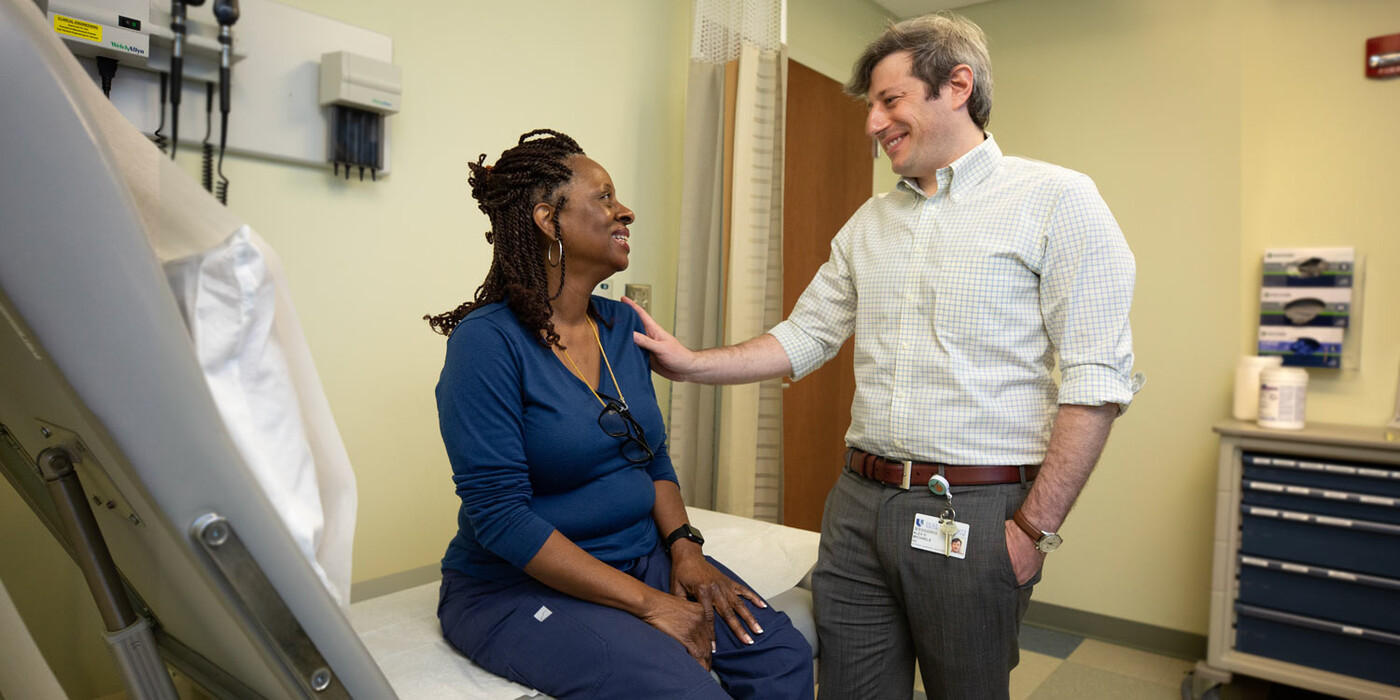If you’ve got an odd bulge in your belly or groin that you can push back in your body, there’s a good chance you have a hernia. If you have questions about whether you need hernia surgery, Jacob Greenberg, MD, a Duke Health general surgeon who specializes in hernia repair, has answers. Here, he explains what hernias feel like and what you need to know about hernia surgery.
What does a hernia feel like?
Most people notice a bulge at the site of their hernia. This can occur in the groin (these are called inguinal hernias) or in the belly (these are called ventral hernias). Hernias can also form at sites of prior surgeries (these are called incisional hernias). Hernias may be painless or may cause pain and discomfort. When the intestines get stuck in a hernia, an intestinal obstruction may occur, which can lead to nausea and vomiting.
Do all hernias need surgery?
Not all hernias need surgery. In fact, it may be safe to live with certain types. However, some hernias can cause certain emergencies and intestinal damage, which is why you should consult with a surgeon. They will perform a physical exam, ask questions about your medical history, and order imaging tests like an ultrasound or CT scan to identify the type of hernia you have, its size, and its location. Your surgeon will use this information to determine if and how the hernia should be surgically repaired.
Do different types of hernias need different types surgery?
Yes. Smaller hernias can be repaired using laparoscopic or robotic procedures. These minimally invasive approaches use small tools passed through small incisions to repair the hernia. They may reduce the level of pain you feel and help you recover faster. Complex hernias typically require large incisions.
How long can I wait to have hernia surgery?
It depends on your symptoms. If you have no symptoms, it is generally safe to wait. If you are having pain and discomfort, it is probably better to get the hernia repaired sooner rather than later. Sometimes, getting hernia surgery right away, even if you have no symptoms, can prevent the need for emergency surgery in the future. That is a risk you take when you live with a hernia.
Is hernia surgery dangerous?
All surgeries have some risk, so there is always the chance of an unintended complication associated with hernia repair. Fortunately, hernia surgery is very common. The size and type of your hernia will determine if repairing it is straightforward with very low risk or challenging and riskier. Having a hernia surgeon who is skilled at repairing all types of hernias will ensure you have the best possible outcome.
How long does hernia surgery take?
This also depends on the size and type of your hernia. Some hernia operations are as short as 30 minutes while others may take four to six hours to repair.
Is hernia surgery outpatient?
Many hernia surgeries can be done on an outpatient basis. However, bigger, more complex operations generally require a hospital stay to ensure that your surgery went well and without complications, and that your pain is controlled following surgery.
How long does it take to recovery from hernia surgery?
That also depends on your hernia type, size, location, whether you’ve had past surgeries and are at risk for complications, and whether hernia mesh was used. Mesh can reinforce the hernia repair and decrease the chance that your hernia will return. In most cases, people can return to all normal activities, including heavy lifting and exercise, in four to six weeks.




